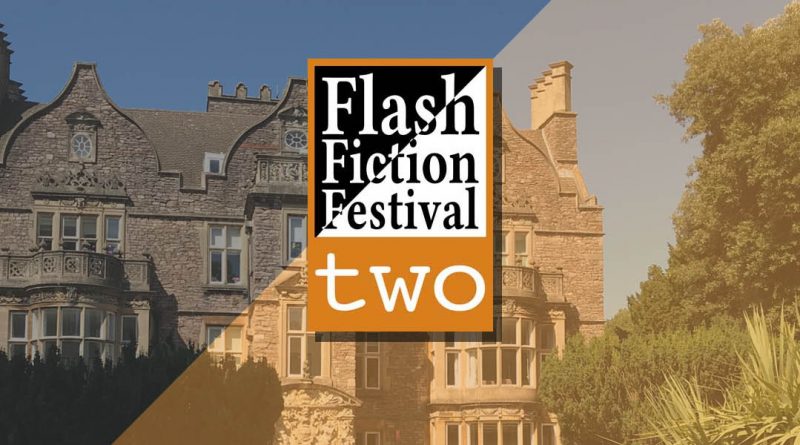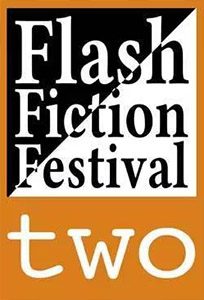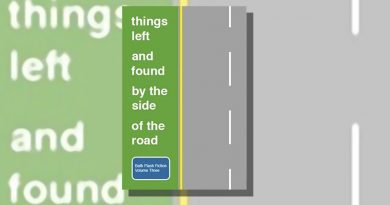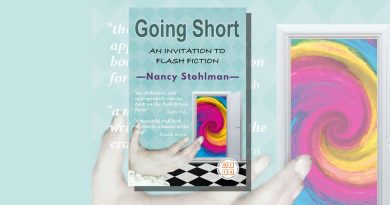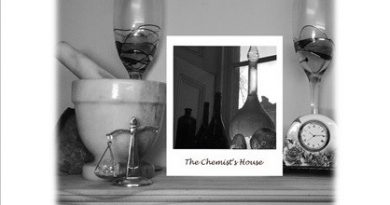Flash Fiction Festival Two edited by Jude Higgins, Santino Prinzi and Diane Simmons
-Reviewed by Cath Barton-
It’s a moot point whether many people buy anthologies of flash fiction other than the writers whose work features in them. I think, though, that there is definitely a wider audience for the very short fiction in Flash Fiction Festival Two (Ad Hoc Fiction), the anthology published after the second literary festival devoted entirely to flash fiction, held in June 2018.
The flash fiction community is one which mainly exists online, and while many of the writers of flash get to know one another virtually, opportunities for them to get together in real life – other than in local gatherings – are rare. The Flash Fiction Festival which was held for the first time in 2017 in Bath, and looks set now to be an annual event, brought together over 100 writers from around the world for its second gathering, this time in Bristol.
The Festival, directed by Jude Higgins, attracted many of the most prestigious writers of flash to give talks and lead workshops. The anthology is a selection of the work submitted by participants after the event. Unlike other anthologies, which may have a theme but otherwise no link between the contents, this is largely work specifically inspired by – and in some cases started in – workshops which their authors attended during the Festival.
The anthology is divided into chapters according to the workshops which inspired them, including Prose Poetry (Carrie Etter), Historical Flash Fiction (Nuala O’Connor), Short and Weird (Calum Kerr) and other intriguing topics such as Move, Meditate and Create (Alison Powell). There is also a chapter of stories which emerged elsewhere.
Dipping into the stories I found lyricism, humour, mystery, horror, poignancy, experimentation and, throughout, strong voices. There are fine examples in the anthology of how the condensed form of flash fiction can convey emotion very powerfully.
Here’s the visceral experience of loss in ‘Dad‘ by Richard Toon:
“You’re taking walks with an invisible cane you can hear tapping on the pavement. You can taste the movement of the curtains in the room where you are sitting, and people are pouring into you from the wallpaper.”
Again, in the final lines of Ali McGrane’s ‘The Last Sheep‘:
“The ewe shuddered from head to tail as her fleece pooled and we released her.
She flew through that doorway into the light, and something in me broke. I looked into my father’s eyes, watched him slump with the pain of knowing.”
The range of imaginative word painting is wonderful, from well-known and fledgling authors alike. From Clare Marsh’s ‘Turned Upside Down‘ we have- “The twin-tub shudders under the burden of my flannelette sheets”, and from Michael Loveday’s ‘The Pond‘ – “A dragonfly rips madly over the water like a ball of flaming magnesium.”
Those submitting pieces prompted by the workshop sessions were invited say something about how they were inspired. I was particularly struck by Anna Nazarova-Evans’ comment about the workshop Extraordinary Points of View (John Brantingham and Grant Hier): ‘By the end of the workshop I felt almost proud of my unique writing voice and let go of the fear that most wouldn’t be able to relate to my stories.’
It’s so good to read of writers feeling empowered in this way. Nazarova-Evans’ story in the anthology, ‘Cucumbers’, is a wonderful example of how so much can be conveyed in the short form:
“Svetlana paid me no attention, instead she stared into the fibres of the carpet. She carried on eating, slowly, methodically dunking each bit of cucumber into salt and raising it to her lips.”
Deborah Tomkins, whose micro ‘The Summer We Turn Four and Three‘ is powered up by a change from present to past tense for the final line, was inspired in Ken Elkes’ workshop Make it Sing, and she comments on the fact that he encouraged writers to do things like changing tense or point of view so as ‘to go into your discomfort zone, to take risks. You are more likely to fail, and also more like to produce something good. Readers appreciate distinctiveness, boldness and new ideas’.
I found the writers’ comments on how they had been inspired during the Festival the most interesting aspect of the anthology, and I wanted to know more about what had gone on in all those the sessions. The positive side of this (intended or not by the editors) may be to encourage readers to sign up for the next Flash Fiction Festival!
—
Flash Fiction Festival Three has subsequently also been published by Ad Hoc Fiction (following the third festival which took place in Bristol in June 2019), and booking is open for the fourth Flash Fiction Festival which takes place at Bristol Trinity College from Friday 19 – Sunday 21 June 2020.
—
Find out more about the Flash Fiction Festival Two anthology on the Ad Hoc Fiction website.
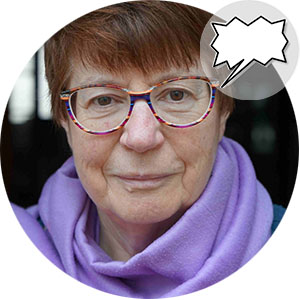
Reviewed by Cath Barton — Cath Barton’s prize-winning novella The Plankton Collector (2018) is published by New Welsh Rarebyte and her second novella, In the Sweep of the Bay (2020), by Louise Walter Books. Cath is also active in the on-line flash fiction community.
Photo © Toril Brancher
Twitter: @CathBarton1 | Website: cathbarton.com

